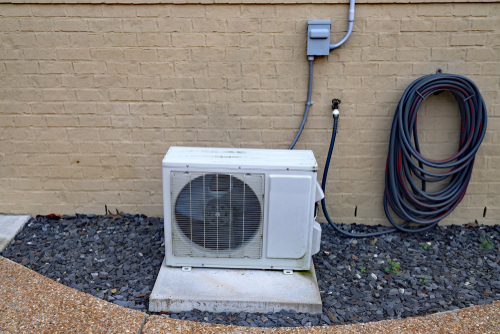HVAC Storm Preparedness: Protecting Your System Against Weather-related Damage
April 11, 2024 6:09 pm Leave your thoughtsHVAC systems are essential for maintaining comfort and indoor air quality in our homes, but they are vulnerable to damage during severe weather events such as storms. Strong winds, heavy rain, lightning, and flooding can all pose significant risks to HVAC equipment, leading to potential malfunctions, breakdowns, and costly repairs. By taking proactive measures to protect your HVAC system against weather-related damage, you can ensure that it remains operational and efficient when you need it most. In this blog, we will discuss essential tips for HVAC storm preparedness to help safeguard your system and ensure reliable performance during inclement weather.
Secure Outdoor Unit
The outdoor unit of your HVAC system is exposed to the elements and is particularly susceptible to damage during storms. To protect your outdoor unit from strong winds, debris, and flying objects, it’s essential to secure it properly before severe weather strikes. Ensure that the unit is anchored securely to the ground or mounting pad, trim any overhanging branches or trees that could fall onto the unit, and consider installing a protective cover or screen to shield it from flying debris.
Elevate Outdoor Unit
Flooding is a common concern during storms, and water damage can be particularly damaging to HVAC systems. To prevent water from entering and damaging your outdoor unit, consider elevating it above potential flood levels. Raising the unit on a platform or mounting it on a stand can help protect it from water intrusion and ensure that it remains operational during and after a storm.
Install Surge Protection
Power surges caused by lightning strikes or electrical grid disruptions are common during storms and can damage sensitive electronic components in your HVAC system. To protect your equipment from power surges, consider installing surge protectors or whole-house surge protection devices. These devices help divert excess electricity away from your HVAC system, preventing damage and ensuring that it continues to operate safely during electrical storms.
Inspect and Secure Ductwork
Leaky or damaged ductwork can allow water, debris, and pests to enter your HVAC system, leading to damage, inefficiency, and poor indoor air quality. Before a storm hits, inspect your ductwork for any signs of damage, leaks, or loose connections, and seal or repair them as needed. Securing ductwork can help prevent water intrusion, debris buildup, and pest infestations, ensuring that your HVAC system operates effectively and efficiently during and after a storm.
Protect Air Vents and Intake Screens
Air vents and intake screens provide essential airflow to your HVAC system, but they can become blocked or damaged during storms, hindering system performance. To protect your system from debris, leaves, and other obstructions, consider installing mesh covers or protective screens over air vents and intake openings. These protective barriers can help prevent clogs and blockages, ensuring that your HVAC system can operate smoothly and efficiently in the aftermath of a storm.
Check and Clear Drainage Systems
Drainage systems, such as condensate drains and drip pans, play a critical role in removing excess moisture from your HVAC system. Clogged or blocked drainage systems can lead to water backup, leaks, and potential water damage, especially during heavy rain or flooding. Before a storm, check and clear your drainage systems to ensure that water can flow freely and be properly diverted away from your HVAC system, preventing damage and ensuring efficient operation.
Schedule Professional Inspection and Maintenance
One of the best ways to ensure that your HVAC system is prepared for storms is to schedule a professional inspection and maintenance service before severe weather season. A qualified HVAC technician can inspect your system, identify potential issues, and perform necessary repairs or maintenance to ensure that it is ready to withstand inclement weather. Regular maintenance can help detect and address problems early, improve system efficiency, and prolong the lifespan of your HVAC equipment, ultimately saving you money and ensuring reliable performance during storms.
Create an Emergency Plan
In the event of a severe storm or weather-related emergency, it’s essential to have an emergency plan in place to protect your HVAC system and ensure the safety of your home and family. Develop a plan that includes shutting off power to your HVAC system, securing outdoor components, and protecting valuable equipment from potential damage. Designate a safe location to shelter in place during a storm, and be prepared to evacuate if necessary to ensure the safety of your loved ones and your home.
Summary
HVAC storm preparedness is essential for protecting your system against weather-related damage and ensuring reliable performance during inclement weather. By taking proactive measures to secure outdoor units, elevate equipment, install surge protection, inspect and secure ductwork, protect air vents, check drainage systems, schedule professional maintenance, and create an emergency plan, you can safeguard your HVAC system and maintain comfort and indoor air quality in your home. With these essential tips for HVAC storm preparedness, you can help prevent damage, reduce the risk of system failures, and ensure that your HVAC equipment continues to operate efficiently and effectively, even in the face of severe weather.
Need a HVAC Contractor in Oklahoma City, OK?
Family owned and operated since 1994, we have earned a reputation for providing quality, timely, and affordable heating and air conditioning services to the residents and businesses of Oklahoma City and surrounding areas. With a combined 39 years of experience, our knowledgeable technicians specialize in a wide range of services including the sales, service, and installation of heating and air conditioning systems, filtration systems, air decontaminating UV lamps, dehumidifiers, humidifiers, carbon monoxide detectors, preventative maintenance, air quality systems, and more. We pride ourselves on installing high-efficiency comfort systems designed to be the most cost-effective on the market and geared to your particular property. Contact us today to learn more about what we can do for you!
Categorised in: HVAC, HVAC Maintenance, HVAC Service
This post was written by admin

